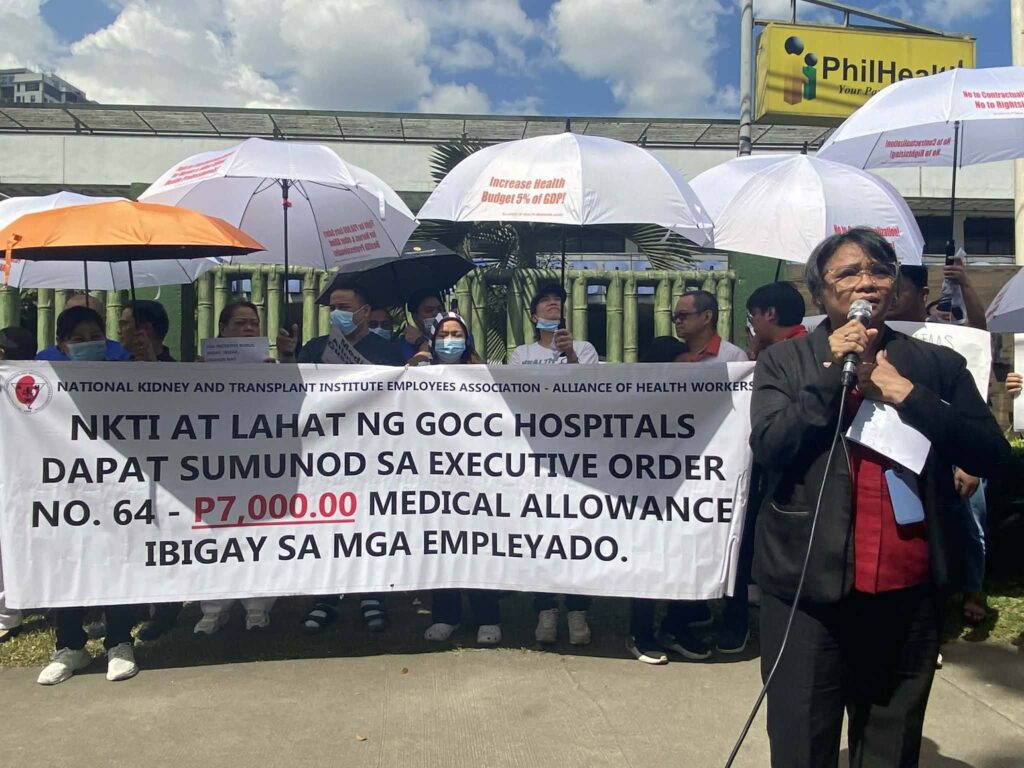A significant majority of Filipinos are unlikely to back candidates perceived as “pro-China” in the May 2025 midterm elections, a commissioned Pulse Asia survey showed.
The September 6 to 13 survey, commissioned by Stratbase ADR Institute, showed that 73 percent of respondents would not back candidates for national positions who are “pro-China, either currently or in the past.”
Only five percent expressed support for such candidates, while 23 percent were undecided.
“The sentiment among Filipinos reflects a profound mistrust toward candidates who align themselves with China. Many Filipinos feel that China’s actions, particularly in the West Philippine Sea, directly challenge our sovereignty and undermine our nation’s interests,” Stratbase ADR Institute President Dindo Manhit said.
“Electing pro-China candidates poses significant risks, as it will lead to policies that compromise our territorial integrity, economic interests,” Manhit added.
Manhit also said that most Filipinos view a candidate’s stance on China as “more than just a political choice,” seeing it as a decision that could endanger the country’s future and its position on the global stage.
Manhit likewise pointed out that “voting for pro-China candidates carries substantial risks, as it would result in policies that undermine our territorial integrity and economic interests.”
Tensions between Manila and Beijing have escalated over the West Philippine Sea, the area within the Philippines’ 370-kilometer exclusive economic zone in the South China Sea, which China largely claims.
Despite a 2016 arbitral ruling that invalidated China’s broad claims, the Philippines accuses Beijing of harassing its sailors and fishermen by using water cannons and lasers.
Opposition to “pro-China candidates” was highest among respondents in the Visayas at 85 percent, followed by 83 percent in Metro Manila, 74 percent in Mindanao, and 65 percent in the rest of Luzon. Across socio-economic classes, opposition ranged from 72 to 74 percent.
In contrast, 10 percent of respondents from Mindanao and 10 percent from classes ABC expressed support for “pro-China candidates,” with support at five percent or lower in other demographic groups.
The same survey results reveal that only one percent of Filipinos consider China a trusted partner for the Philippines when it comes to national development.
In the survey, United States ranked as the Philippines’ most trusted partner in national development, with 79 percent of respondents expressing trust, followed by Japan at 50 percent.
The United States also emerged as the “most beneficial economic partner” for the Philippines, with 66 percent of respondents acknowledging this, followed by Japan at 43 percent.
Other notable partners included Australia (32 percent), Canada (31 percent), the United Kingdom (16 percent), South Korea (15 percent), the European Union (12 percent), Russia (11 percent), and India (8 percent).
The survey included 2,400 respondents and has a margin of error of ±2 percent. (TCSP)




